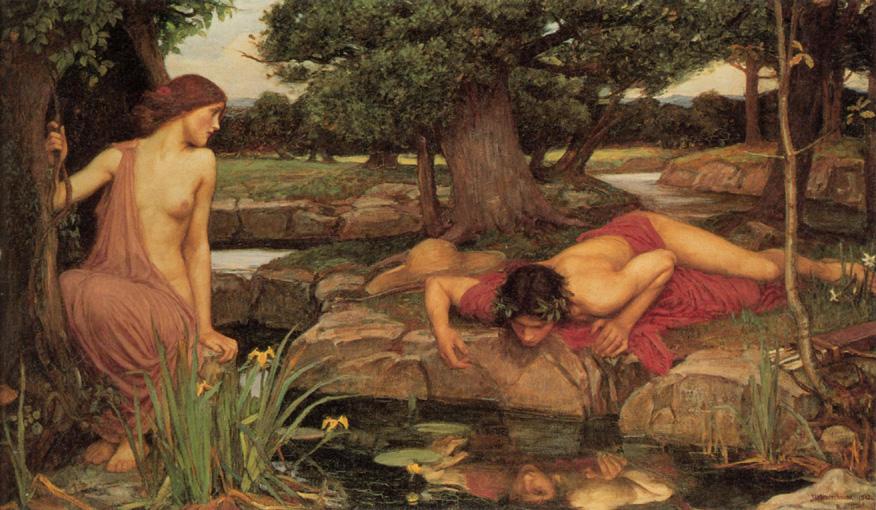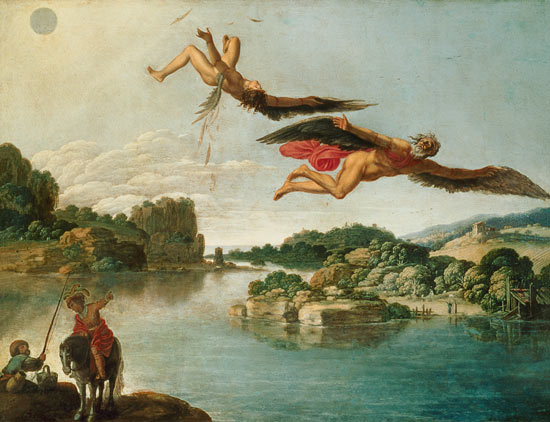Share This:
October 31, 2012 | Theatre,
New Bodies with New Minds: Reasons to Re-visit Ovid

Head of a Woman with Horns of a Ram by Jean Leon Gerome, 1873
“My mind leads me to speak now of forms changed
into new bodies: O gods above, inspire this undertaking (which you’ve changed as well) and guide my poem in its epic sweep from the world’s beginning to the present day.”
–Metamorphoses by Ovid, translated by Charles Martin
Turning the pages of Ovid’s Metamorphoses is one of the more challenging (but incredibly rewarding) reads you’re likely to encounter. Not because the language is difficult—in actuality it’s quite pared down and undoubtedly lovely—and not because there is a lack of story or action. In fact, packed into this voluminous literary classic are hundreds of tales each with their own individual story arch that happens seemingly in an instant. Some of the tales last for a mere couple pages, and suddenly things have changed.
And that is what makes it challenging: the change. This idea of transformation is counter-intuitive to most of our natures. When I encountered Ovid for the first time, I was enraptured with the idea of metamorphoses. Acteon sees the goddess Diana bathing and—poof—is turned into a deer as punishment, only to be torn apart by his own dogs. Echo follows her lover Narcissus through the woods, clinging to his last words, repeating them in an attempt to express herself until he becomes obsessed with his own reflection and transforms into a flower; and thus, the echo is birthed, haunting the woods by repeating the most recent sound. Baucis and Philemon accept the weary disguised Zeus into their home and are rewarded by being transformed into intertwining trees so they may never grow apart from the one they love.

Echo and Narcissus by John William Waterhouse, 1903
In the tales of morphing, I found myself emotionally pulled in different ways. There seems to be a lost reverence, piety, honesty, or justice expressed in each of them that I can’t see in the world I inhabit. At the same time, being in a season of continual change (known as college) makes each of these stories resonate deeply with me as I learn to accept my personal transformation and anticipate the consequences of the choices I make. Ovid has accomplished the goal he set out in the Proem: to create a sweeping set of tales that describe the world from its very origin to the present day. Centuries after penning the original myths, Ovid still hasn’t gone out of style.
By the time I left Ovid behind—having still not read all of the myths—I felt that I had changed myself. My body looked the same, but my mind began to work differently. I like to think that’s how Ovid intended it. I could not leave Echo alone in the woods, waiting for someone to speak so she could express herself. I wanted to see what Narcissus looked like in real life, but what was left of him was just a flower, an impression of what he saw in that reflecting pool. Trees began to appear as a metaphor for strength, stability, and love. It all sounds crazy, but so do all of the Ovid myths if you try to look at them logically.
That is the key: leave logic behind. Let go. Allow the mythical power to take over and transform. For some of us, that’s incredibly hard to do. Now on the other side of Ovid, I think the challenge to release control could not be more worth it. As my life continues to change and morph, I think it’s time to re-visit Ovid’s unbeatable poetry and see what the impossible stories inspire this time around. Maybe you can visit them as well—whether it be for the first time, the second, the fifth, the hundredth. Who knows what could happen.

The Fall of Icarus by Carlo Saraceni, 1585
Maybe we stay on the ground, our feet extending roots into one place so we can grow upward and outward. Maybe we take on a new human form and interact differently with the mortal world. Or maybe we turn into birds and soar high above the ground that has held us so long.
Whatever it is, the gods will decide.
TALES FROM OVID
NOV 08 – 18
Visit artsemerson.org for details.




Leave a Reply